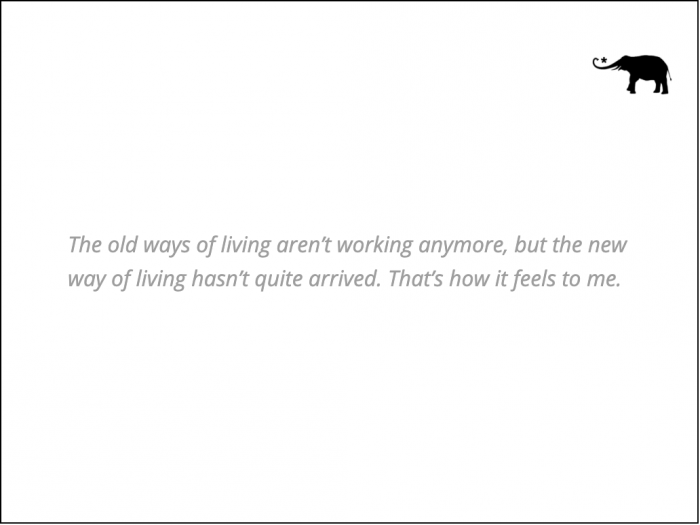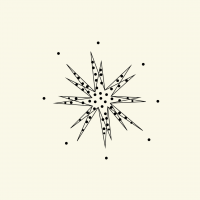For as long as there have been people, there have been stories that taught us how to act. The stories relevant to our culture—religion, family legends, bootstrapping success stories, tales of individuality or collective care—provided a roadmap for how we should live, what we should expect, and how to understand cause and effect in our lives.
Those stories are dissolving now—becoming so refracted by hot takes and new perspectives that we can no longer make sense of the narratives. We take a look at the generations before us, consider the return on their investment in a particular reality, and decide to place our money elsewhere. The old ways of living aren’t working anymore, but the new way of living hasn’t quite arrived. That’s how it feels to me.
So, what do we do now?
If I could make one wish, it would be that we were all living a life that was right for us. I would wish that we were all living inside our own energy, at peace with who we are, working towards goals that felt right to us, and supported by each other and by our work in the world.
I’m a tarot reader, and I see my tarot reading as an active experiment in creating that new reality. The tarot gives us a set of archetypes that show us what people are like. It gives us stories to arrange and rearrange. It challenges us with questions about what matters, what distracts us, and what causes us pain. It offers new ways to see cause and effect.
The tarot gives us a set of parameters—visual cues—to ground us while we try to write a new, better story about how the world works.
The tarot leads me to ask questions like, “How do you wish the world worked? If a certain action always led to a certain result, what would you choose for the action, and what would you choose for the result? What do you want? What does success mean for you? What feels surprisingly empty, and what feels surprisingly fulfilling? What beliefs have created the life you are currently living? What do you hope for the future?”
This all feels a little heady, maybe. Sometimes this line of thinking can make us feel disconnected from our bodies and from the gravitational force of reality, the way you feel when you’ve been on the Internet for a bit too long. It can make your head swim and your laundry remain perpetually unfolded. It can make you feel like you need to figure it all out before you stand up and move on with your day.
Here’s what I’d like to say about that: your brain has no answers. Your brain only has questions. Don’t circle around and around in your thoughts, looking for new answers. You will only find questions.
Answers come from somewhere else. They don’t come from the tarot cards themselves, or from your thoughts about those cards. They come from God, or whatever it is that feels like God to you. They come from inside your body when you are resting, walking, or enjoying some silence. The tarot is the medium I use to communicate these answers in story form, because story is the language our brains speak. The tarot is a translator of an answer we receive elsewhere. Our brain can settle down once it has a story to hold onto, like giving a baby a pacifier dipped in sugar water.
That is the last word, I think, on the use of stories: they soothe us. They soothe us, and we need soothing to navigate a confusing and changing world. We need some comfort while charting a new course, to orient ourselves in the world as a particular character. To know which way is up.
So, if you read tarot for yourself or if you receive readings from someone else, consider this: the story the cards offer is nothing more than a walking stick for your brain. It isn’t the journey itself—it’s a resting place for your mind. Accept the comfort the story provides (God knows we need it) but don’t let it cause you shame or confusion. Don’t wrestle with the cards for answers about the unknown. You are creating a new world, a new way of life, one day at a time. What do you want it to be like?












Read 0 comments and reply